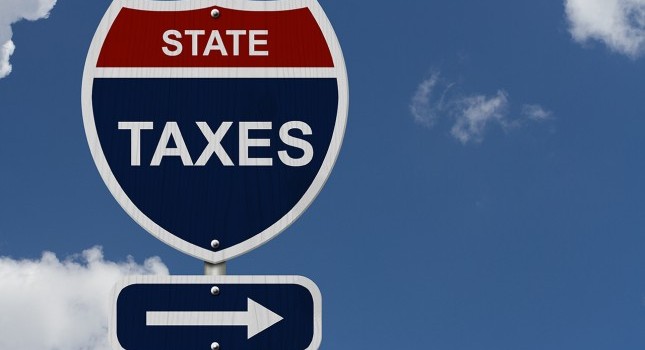SALT Outlook: What to Expect Post-COVID-19
By James (Jay) M. Brower, Jr. | May 26, 2020
Right now, the COVID-19 pandemic is wreaking havoc on the worldwide economy and on state and local budgets. Most states and municipalities have instituted tax relief programs for individuals and businesses, which have pushed back tax return filing and payment dates. As such, in the future, states may have to resort to borrowing, spending cuts and tax increases to recoup some of their current losses. While states and municipalities are not being heavy-handed with tax enforcement yet, once the COVID-19 situation starts to improve (possibly later this year and next year), we may see a lot of activity in the State and Local Tax (SALT) environment. This could include:
- Temporary Rate Increases & Surtaxes: Many times, tax rate increases (sales, income, property, etc.) and surtaxes are enacted as a temporary measure in a down economy. With the economic downturn created by this crisis, we can probably expect several states and municipalities to enact these increases. As of the time of this post was written, the New York legislature is considering a bill that would increase the state’s top tax rate on individuals with income in excess of $1 million from 8.82% to 11.82%.
- Gross Receipts Based Taxes: As another way to raise much-needed revenue, states may impose new business taxes such as gross receipts taxes, which have become popular recently. Unfortunately, unlike net income-based taxes, gross receipts taxes are difficult to plan around and avoid. Also, since they are based on gross income and not net income, Public Law 86-272 protections do not apply to them.
- Repeal, Limitation or Suspension of Tax Credit Programs: Many states allow businesses and individuals to claim tax credits against their income tax if the business or individual engages in some sort of tax-favored activity. Unlike deductions, tax credits provide a dollar-for-dollar offset in tax. As states look to balance their budgets, we may see the elimination, suspension or limitation of these tax credits.
- Expanded Nexus Rules: In South Dakota v. Wayfair, Inc. (June 2018), the U.S. Supreme Court ruled that states can require businesses to collect their sales taxes if the business has an “economic nexus” with the state. The concept of economic nexus is just as easily applied to corporate income tax and to gross receipts taxes (see above). While many states already have a bright line gross receipts standard for economic nexus in the context of income and gross receipts taxes, we should expect other states to enact them.
- Expansion of Sales Tax Base: As a general rule, sales taxes are typically imposed on retail sales of physical goods. Services, however, are generally exempt, unless they are specifically identified as taxable (e.g., cable TV and telephone services). In an effort to raise additional tax revenues, we will probably see many states broaden their sales tax base by designating more services as being subject to tax, including personal and professional services.
- Combined Reporting: “Combined Reporting” is a concept that is generally applied to corporations that have common ownership and are engaged in a “unitary” business. By being required to file a combined tax return, the incomes of all entities in the enterprise are combined and any intercompany transactions are eliminated. Consequently, income (or losses) earned by a corporation that has no presence in a state that requires combined reporting still winds up in that state’s tax base if it has an affiliate in that state. Presently, 29 states require combined reporting. We may see more states require it in the future, as there is a general perception that the alternative, separate reporting, results in significant amounts of tax avoidance.
- Amnesty Programs: Amnesty programs are typically set up by states and municipalities in order to bring in a fast influx of tax collections. Amnesty programs afford taxpayers who haven’t filed returns or who have not paid all of their tax liability the opportunity to come forward to file delinquent returns and pay tax deficiencies without being assessed penalties, and at a reduced rate of interest (or perhaps no interest at all). Businesses and individuals who choose not to participate will have “non-participation” penalties, typically 5%-10% of the amount otherwise owed, tacked on.
Recently, the Ohio legislature passed a tax amnesty bill that, if enacted, will go into effect early next year. Ohio is likely just the first state “out of the gate” in at least contemplating an amnesty program. Most states also sponsor some sort of voluntary disclosure program, which may result in a more favorable result for a business. Business owners who are concerned that they have may have known or unknown but unpaid tax liabilities should consider discussing their situation with a SALT specialist.
About James (Jay) M. Brower, Jr.

Jay Brower, CPA, is a Partner of corporate and individual tax compliance and research services at Marks Paneth, LLP. He has more than 20 years of professional experience at the federal, state, and local levels. Mr. Brower's duties also include the development of tax planning and implementation strategies, as well as education and development of the firm's professionals. Mr. Brower provides tax planning and compliance services to clients in the manufacturing, commercial fishing, telecommunications, professional... READ MORE +


